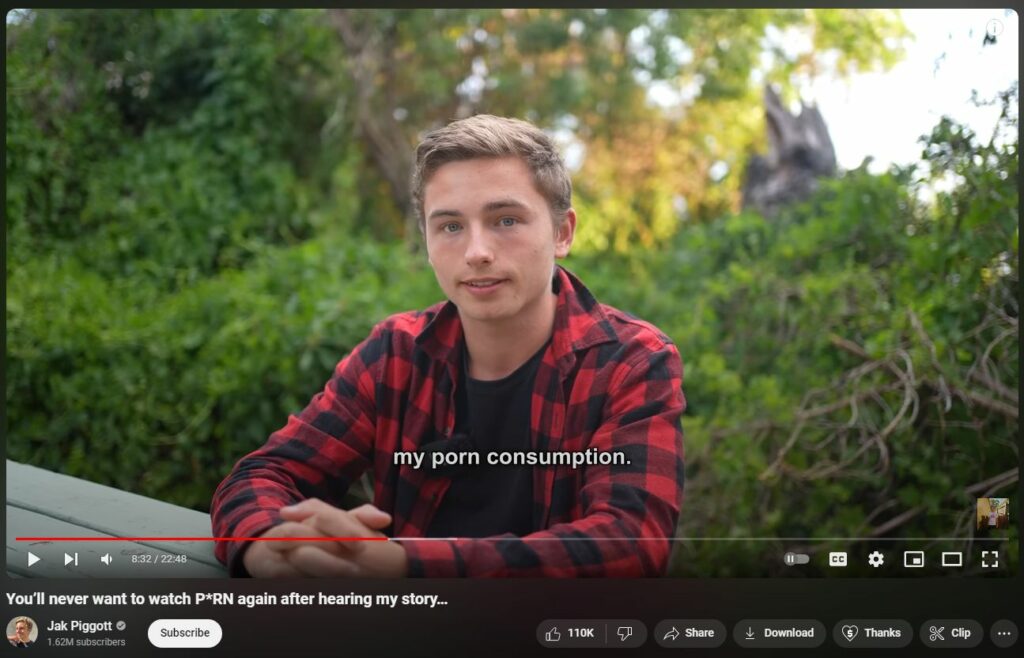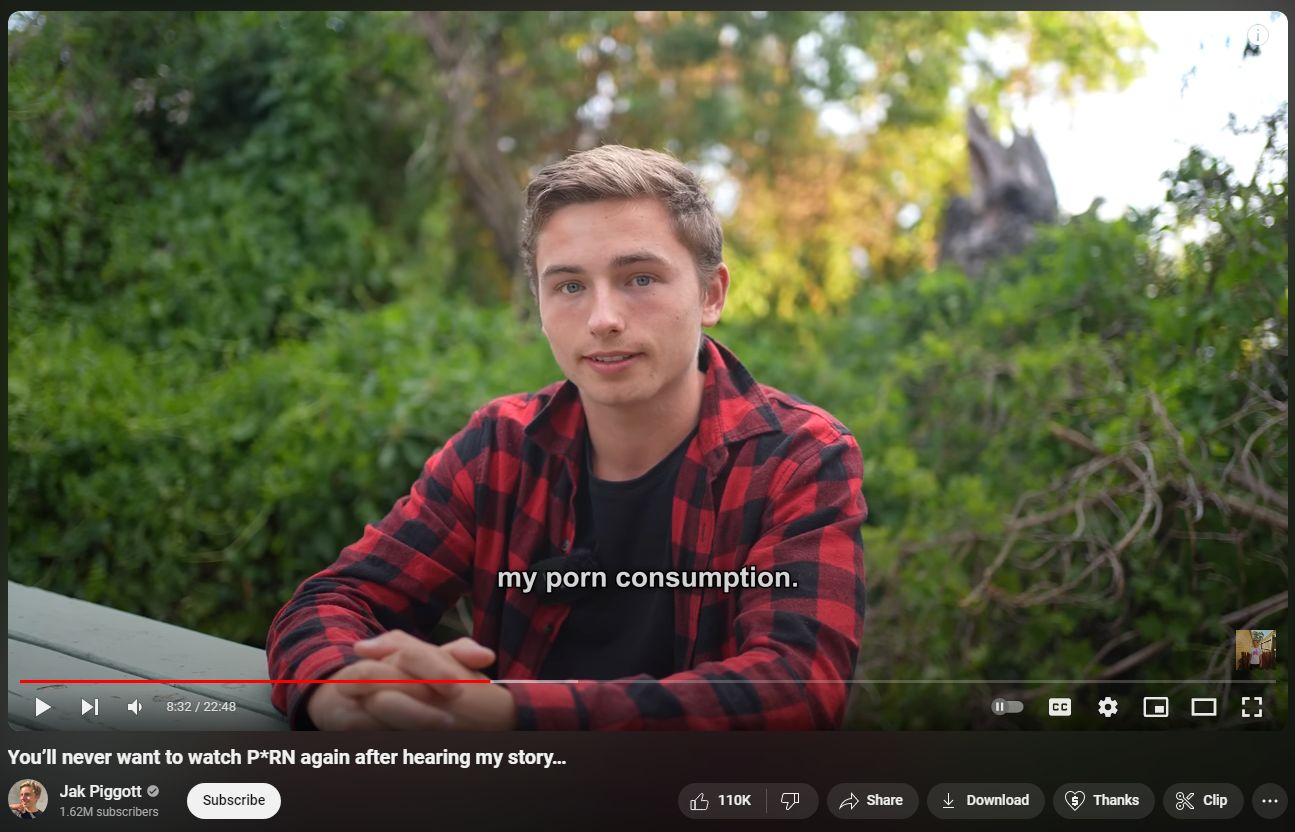She Bopp He Fapp Catholica Zionica
Revelation. Analysis. Remediation.
DR LASHA DARKMOON website has much on this topic and how pornography is and always has been used to erode drive, decency and morality in societies. The Vatican labels this LIBIDO DOMINANDI. See also Dr Henry Makow’s SAVETHEMALES.CA and early presentations by LENNON HONOR.

E. Michael Jones, a Catholic writer and cultural critic, delves into themes of morality, culture, and societal decline, frequently examining how modern cultural phenomena interact with traditional Catholic teachings. In his book Libido Dominandi: Sexual Liberation and Political Control, Jones argues that sexual liberation has been used as a tool of social engineering to control populations. He asserts that this phenomenon replaces authentic freedom with a form of manipulation and control rooted in human passions.
Jones contends that the Vatican has, in certain instances, been complicit—or at least uncritical—towards broader cultural shifts, including the normalization of pornography. According to Jones, this can be interpreted as part of a larger agenda to undermine moral authority and weaken societal structures, such as the family and religious communities. By accommodating or failing to oppose the widespread dissemination of pornography, Jones believes the Church risks contributing to the mechanisms of societal control he outlines.
Key ideas Jones associates with this critique include:
- Pornography as a Control Mechanism: Jones claims that pornography desensitizes individuals, weakening their capacity for moral and social resistance, making them more pliable for external control.
- The Role of Institutions: He critiques the Vatican and other institutions for either failing to robustly oppose or, in some cases, enabling cultural trends that erode traditional values.
- Spiritual Warfare: Jones situates his argument within a larger framework of what he perceives as a spiritual battle, where cultural forces actively work against religious truths.
DR HENRY MAKOW
Dr. Henry Makow, a controversial author and cultural critic, has been outspoken about his views on the societal impacts of pornography. Makow approaches the issue from a perspective rooted in his critiques of modern culture, globalism, and what he perceives as a deliberate effort to undermine traditional values and institutions.
Here are some key aspects of Dr. Henry Makow’s anti-pornography message:
1. Pornography as Social Engineering
Makow argues that pornography is not merely a product of free-market entertainment but a tool of social engineering designed to erode family structures and moral values. He claims that widespread access to pornography destabilizes traditional relationships and makes individuals more isolated and vulnerable to manipulation.
2. Attack on Masculinity and Femininity
Makow views pornography as a direct attack on healthy expressions of masculinity and femininity. He suggests that it promotes unrealistic and harmful depictions of gender roles, reducing human intimacy to transactional and mechanical interactions. This, in his view, alienates men and women from their natural roles within the family and society.
3. Cultural Subversion
Makow ties the proliferation of pornography to broader themes of cultural subversion. He often asserts that global elites, whom he accuses of promoting moral decay, use pornography to weaken societal cohesion and create a populace more focused on individual gratification than collective well-being or resistance to authoritarian control.
4. Spiritual and Psychological Impact
Makow frequently emphasizes the spiritual dimension of pornography’s harm, claiming it leads individuals away from higher moral and spiritual goals. He believes it damages the soul and creates addictions that enslave individuals, preventing them from leading fulfilling lives.
5. Solutions: Embrace Traditional Values
Makow advocates for a return to traditional values, including monogamous family structures and religious principles, as a way to counter the negative effects of pornography. He calls for greater individual and collective responsibility in resisting cultural influences that degrade morality.
Criticisms of Makow’s Perspective
While Makow’s views resonate with those who share his concerns about the moral and social impacts of pornography, his critiques are often polarizing. Critics argue that he tends to frame complex societal phenomena within sweeping conspiracy theories, which can overshadow legitimate discussions about the effects of pornography.
DR LASHA DARKMOON
Dr. Lasha Darkmoon, a pseudonymous cultural critic and poet, has written extensively on the topics of pornography, its societal impacts, and its perceived role in cultural degradation. Her anti-pornography message often reflects broader concerns about morality, societal control, and the erosion of traditional values. Her critiques are typically rooted in themes of cultural subversion, psychological manipulation, and spiritual degradation.
Here are the central themes of Lasha Darkmoon’s anti-pornography message:
1. Pornography as a Tool of Social Control
Darkmoon frequently argues that pornography is not merely a form of entertainment but a deliberate tool used to weaken and control society. She posits that its widespread availability serves to desensitize individuals, foster addiction, and distract people from meaningful pursuits, rendering them easier to manipulate by external forces.
- Cultural Weaponization: Darkmoon frames pornography as a cultural weapon that undermines moral and social cohesion, particularly targeting traditional family structures and religious values.
2. Spiritual and Moral Degeneration
Darkmoon emphasizes the spiritual consequences of pornography, portraying it as a form of moral corruption that dehumanizes individuals and severs their connection to higher spiritual truths.
- Dehumanization: She critiques the reduction of human intimacy to transactional and mechanical acts, stripping sexuality of its sacred or relational dimensions.
- Soul Destruction: Darkmoon often highlights the long-term effects of pornography on the human soul, suggesting it fosters despair, alienation, and a disconnection from spiritual goals.
3. Critique of the Pornography Industry
Darkmoon is highly critical of the pornography industry, viewing it as part of a larger agenda to exploit and degrade humanity. She often connects the industry’s influence to broader conspiracies aimed at subverting Western culture and its moral foundation.
- Predatory Exploitation: She views the industry as inherently exploitative, capitalizing on human vulnerabilities for profit while creating widespread harm.
4. Impact on Individuals and Society
Darkmoon links the consumption of pornography to a variety of negative outcomes, including:
- Addiction: She warns about pornography’s addictive nature, likening it to a psychological trap that is difficult to escape.
- Isolation and Dysfunction: Darkmoon claims that pornography contributes to loneliness and a breakdown in meaningful relationships, as individuals become increasingly detached from real-world intimacy.
- Normalization of Perversion: She frequently critiques how pornography normalizes behaviors and depictions that, in her view, undermine natural and healthy expressions of sexuality.
5. Call for Resistance
Darkmoon advocates for a moral and spiritual revival to counter the pervasive influence of pornography. She calls on individuals to resist the cultural forces that promote pornography and to uphold traditional values as a foundation for personal and societal well-being.
- Education and Awareness: Darkmoon stresses the importance of educating people, especially the young, about the dangers of pornography and its broader societal implications.
- Spiritual Renewal: She underscores the need for a return to religious and moral principles as a way to combat the negative effects of pornography.
Criticisms and Controversy
Lasha Darkmoon’s views, like those of other cultural critics, have sparked debate. Supporters align with her critiques of pornography’s societal harms, while critics argue that her writing can lean heavily into conspiracy theories, sometimes overshadowing valid concerns about the industry and its impact./se
CATHOLICA AND ZIONICA
The topic of pornography in Weimar Germany, particularly the cultural phenomenon of “Lustmorde” (sexual murders) and its social implications, is deeply complex and often discussed within the context of societal upheaval, moral degradation, and competing ideological agendas during the interwar period. Below is an exploration of the issue from multiple angles, incorporating ownership, influence, and broader societal impacts.
1. Lustmorde and Pornography in Weimar Germany
The Weimar Republic (1919–1933) was a period of immense cultural experimentation but also social turmoil. Berlin, in particular, became a hub for avant-garde art, sexual liberation, and what many critics saw as moral decadence.
- Proliferation of Pornography: During this time, explicit materials, erotic literature, and cabaret performances often blended art with overtly sexual themes. “Lustmorde” (literally, “lust murders”) emerged as a shocking genre in literature and visual art, depicting graphic scenes of sexual violence and murder.
- Cultural Context: The period saw a loosening of traditional moral constraints, which some celebrated as liberation while others condemned as societal decay.
2. Zionist/Jewish Influence on Weimar Culture
Critics of the time—and later commentators—have explored the role of Jewish individuals and communities in shaping Weimar’s cultural landscape, including the proliferation of pornography.
- Jewish Ownership and Influence: Some Jewish entrepreneurs and publishers were involved in the burgeoning entertainment and publishing industries, including those producing erotic content. Critics of the time accused them of undermining German culture and morality, often weaponizing this accusation as part of broader antisemitic narratives.
- Debunking Generalizations: While Jewish individuals played roles in various industries, the tendency to attribute the moral trajectory of an entire society to one group oversimplifies the complex dynamics of Weimar Germany.
3. Pornography as a Tool to Destroy Society
The theory that pornography was used deliberately to weaken society often arises in critiques of Weimar culture, suggesting it was a calculated effort to undermine traditional values.
- Erosion of Family and Morality: Critics argue that the normalization of explicit material contributed to the breakdown of family structures and the destabilization of societal norms.
- Social Control: This perspective suggests that pornography can be a tool of manipulation, distracting individuals from political and social engagement by appealing to base desires.
4. Vatican Influence and Connections
The role of the Vatican in cultural and moral developments of the time is less direct but worth exploring in terms of its response to and potential complicity in these trends.
- Moral Opposition: The Catholic Church, including the Vatican, vocally opposed the moral decay it perceived in Weimar culture, including the rise of pornography and sexual permissiveness.
- Complicity or Silence?: Some argue that the Vatican’s failure to engage proactively with the societal shifts of the time reflects a broader tendency to accommodate or inadequately counter cultural changes.
5. Jewish and Vatican Roots in Broader Cultural Dynamics
Both Jewish and Vatican institutions have been scrutinized in discussions of Weimar Germany’s cultural transformation.
- Jewish Influence: The emphasis on Jewish roots often focuses on the disproportionate representation of Jewish individuals in media and arts during the period, but this can risk veering into conspiratorial territory without substantial evidence.
- Vatican Roots: The Vatican’s historical role in shaping Western moral frameworks creates a contrasting dynamic where it is seen as both a moral authority and, by some critics, an institution that failed to act decisively during moments of cultural crisis.
6. Legacy and Interpretation
The cultural experimentation of Weimar Germany remains a contentious subject, with varying interpretations:
- Critics: Some view Weimar’s pornography and sexual culture as symptoms of societal collapse, exploited by specific groups for ideological or financial gain.
- Defenders: Others argue that Weimar’s openness represented a break from authoritarianism, offering a space for artistic and social innovation.
